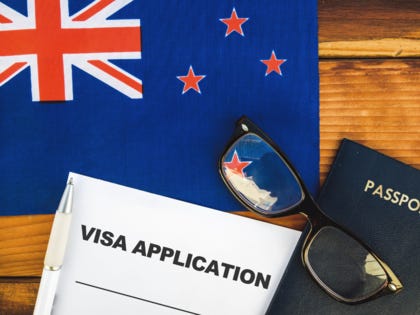While Kiwis wait weeks to see a doctor, the Government rolls out the red carpet for migrants’ parents
Within days of opening the new Parent Boost Visa, nearly 200 applications flooded in, a canary in the coal mine. The government expects between 2,000 and 10,000 applications annually, with a working model of around 6,000. What the official spin frames as a meaningful way for families to spend extended time together is more than that. It is a gamble with our social fabric, our hospitals and the day-to-day lives of everyday Kiwis. In my opinion it is a recklessly optimistic policy that risks degrading the New Zealand many of us still want to live in.
Our public services are already under strain. It sometimes takes weeks to see a doctor. Waiting lists for specialists are long. Hospitals, especially in growing urban and provincial hubs, struggle to match staffing and capacity to demand. Adding thousands more year after year increases load, pushes times further, and forces either rationing or cuts in quality.
In local councils, public transport, GP surgeries, mental health services, and social support systems, the margin is already thin. The new parent visa is placing more weight on a structure already nearing capacity. If 6,000 is the baseline, over a decade that’s tens of thousands of additional people with health, housing and infrastructure demands. Even if many contribute economically, the lag between cost and benefit, or even failure to match investment, can mean nothing but crowding, longer waits, and stretched communities.
There is a real and growing sense, especially in places outside the hyper-growth spots, that the land is changing so fast it’s almost unrecognisable. Towns and suburbs where people once knew their neighbours, where local identity mattered, are feeling diluted and overrun. When population influx happens too fast without deliberate planning, communities fracture. Long-term residents feel displaced in their own homes. The cultural norms, the pace, the public rhythms all shift.
We pride ourselves on being a small, coherent, bicultural democracy. When policy seems to favour mass intake over maintaining balance, New Zealand risks losing coherence. Changes to the face and feeling of our towns and cities happen perceptibly and sometimes painfully to the people already here.
Here’s the cruel irony. The government opens its arms for immigrant parents, offering them up to five years’ stay under the new scheme. However for Kiwi families, a different rule applies. If your have a child aged 18 or 19 and you earn more than $65,000, you may be legally obliged to continue supporting them. That feels punitive. Why such a disparity? Why reward non-nationals’ familial ties yet impose strict burdens on our Kiwi families who are already struggling? If the aim is social equity, this betrays it. It rewards the newcomer and burdens the citizen.
The foreign parent is welcomed, the Kiwi parent is constrained. That is the sort of inversion people feel when they say their own country seems to work against them. Supporters will most likely argue that sponsors must earn a median wage threshold and health checks and insurance are required. Thresholds and paperwork do little if the numbers and pressure get ahead of infrastructure.

Worse, the residence pathway remains uncertain and the parent resident visa is stuck in limbo, with shifting timelines and an inscrutable ballot scheme that many see as unfair or unworkable. Meanwhile, new parent visa holders aren’t guaranteed permanence, their status depends on renewals, conditions, and the whims of future governments. It’s not wrong to value families, but a policy that bets on large, untested inflows without matching investment or fairness is a recipe for disillusionment.




